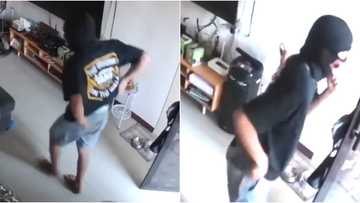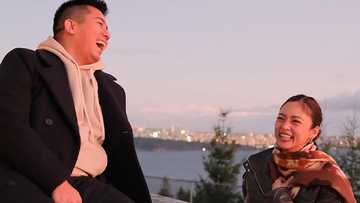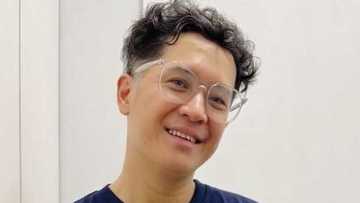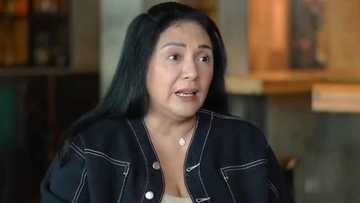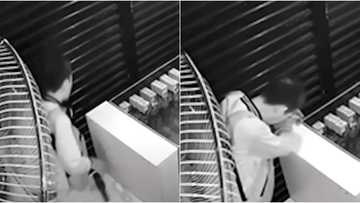He Swapped Mourning For Signatures: The Parish Ledger That Saved Our Inheritance
Two days after we buried my tatay, my uncle walked into the compound with a plastic folder clutched under his arm. His eyes were dry, his shirt freshly pressed. "I have handled the land issue," he said, waving a crisp document before the visitors had even cleared their plates.
Narito na ang paghahanap sa KAMI! Basahin ang mga balita tungkol sa iyong paboritong mga bituin sa pamamagitan lamang ng pag-type ng kanilang pangalan sa search bar!
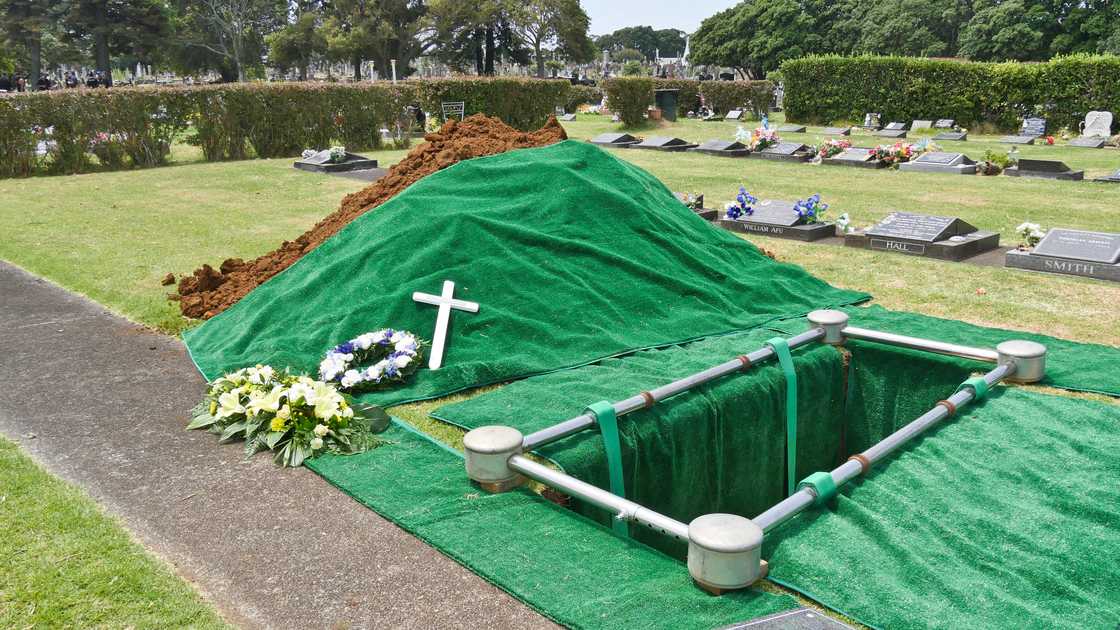
Source: UGC
Nanay froze. I stood beside her, clutching the parish contribution record she had guarded since before I could write my name. The Barangay Captain glanced at the paper and said it looked valid. Valid?
Tatay had been in the ground for less than a week, yet somehow his brother had managed to produce a Transfer Certificate of Title (TCT).
That night, I could not sleep. I lay awake listening to the stray dogs cry beyond the riverbank, and each sound felt like a laugh at our helplessness.
Nanay whispered prayers in the dark, one hand resting on the notebook that contained years of receipts, parish payments, and school levies written in the priest's hand.
Like and share our Facebook posts to support the KAMI team! Share your thoughts in the comments. We love reading them!
"This is our proof," she said, though her voice trembled.
At dawn, I decided to fight. I began to search for evidence, not in government offices, but in places people often overlook: old church records, a parish secretary's memory, and a neighbour's testimony. Somewhere in those faded pages lies our truth.
Weeks later, when a young lawyer opened that same plastic folder in court and pointed out the misspelt seller's name, my uncle's forged transfer fell apart like wet paper. The judge voided the deed.

Source: Getty Images
We planted bougainvillaea along the boundary, bright and sharp like survival itself, and hung a small wooden sign that read Nanay's Field. When my uncle returned months later, pretending to make peace, I handed him kangkong from the garden and said, "Land is for the living. Help us till."
Tatay's death cracked our family open like dry earth. He had been the quiet pillar who signed every form, attended every Barangay assembly, and negotiated every dispute with calm authority.
When he died suddenly of a stroke, we lost not only a parent but also the only man who understood the full story behind our land.
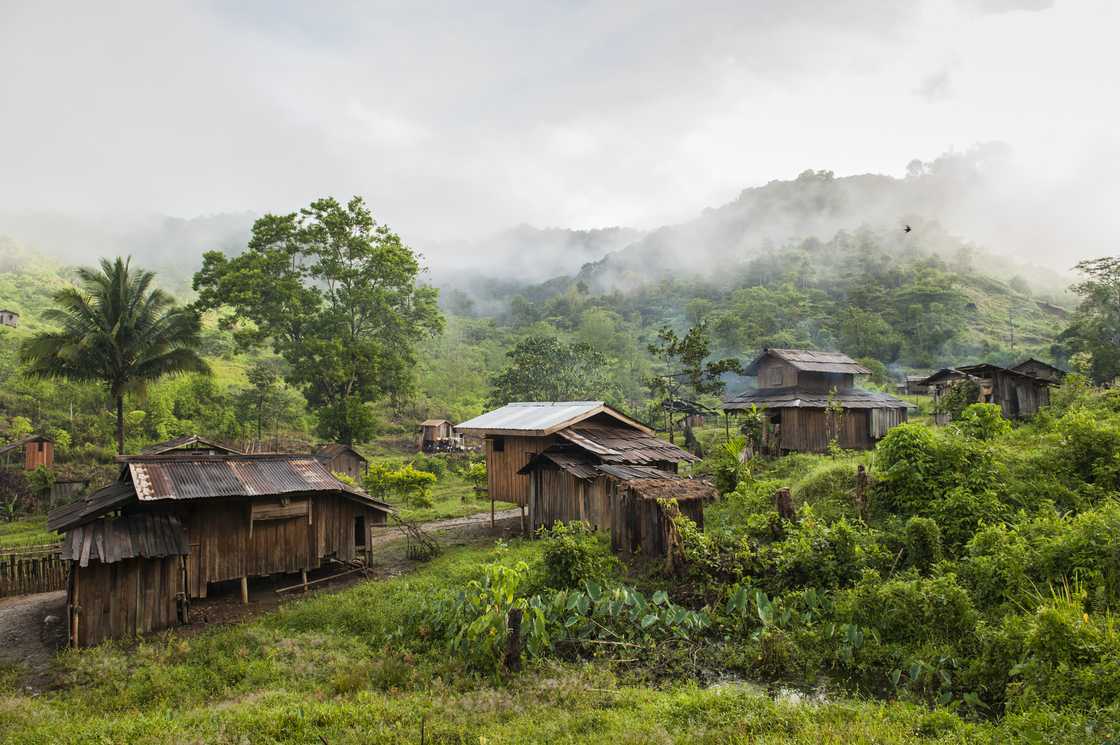
Source: Getty Images
Our home in Batangas sat on a gentle slope overlooking the valley. The soil was red and forgiving, the kind that stained your hands but yielded food even in lean seasons. Tatay had inherited part of the family plot from his own ama, who had cleared it with a machete and planted coconut trees that still lined the lower edge.
The land had no formal title, only a thread of history held together by parish receipts, elders' signatures, and a school ledger from the 1970s.
Tatay trusted his younger brother, Uncle Ramon, who lived in town and wore a tie even on weekends. Whenever land officers came around, Tatay would hand him the documents. "He is educated," ama would say with quiet pride. "He knows these things."
Nanay never argued, although she often sighed when he turned away. I later realised those sighs were warnings we had ignored.
When Tatay fell ill, Ramon arrived with a briefcase and concern that sounded rehearsed. He spoke mostly about succession forms, survey fees, and boundary marks. I thought it was love wrapped in responsibility. I was wrong.

Source: Getty Images
After the burial, when we expected mourning, Ramon returned holding a plastic folder and a document bearing his name. He said Tatay had signed a transfer before he died. The Barangay Captain looked it over and said it seemed legal.
Neighbours murmured in confusion. Nanay sat still, her fingers twisting the hem of her wrapper. I saw fear in her eyes, the kind that comes when grief meets betrayal.
That night, we lit a small fire and spread out every paper Tatay had kept. Among them was a parish ledger showing that Nanay had paid land tithe to St. Niño's for twenty-five years. Each line carried the parish secretary's signature. Tatay had always joked that the church's ink was stronger than a government stamp.
I remembered his words and decided that if our future depended on signatures, then I would gather every one of them.

Source: Getty Images
The following week, I visited the Batangas City Land Office. The clerk, a tired man with red eyes, flipped through files and shrugged. "The new deed is clean," he said. "Maybe your mother sold it and forgot."

Read also
17-year-old girl found dead in Bacolod Reclamation Area; police investigating mysterious final chat
I almost laughed. "Forgot to sell land?"
He leaned closer and lowered his voice. "Sometimes signatures are borrowed."
Borrowed. That single word sank deep. Someone had copied Tatay's handwriting or used his old ID photocopy to push through a fake transfer. I left the office dizzy with anger.
Nanay wanted to give up. "We cannot fight your uncle. He has money, he has friends."
But I could not watch her lose the only home she had built. I began tracing evidence like a detective. I walked to St. Niño's Parish with Tatay's old notebook. The parish clerk, an elderly woman named Beatrice, led me to a back room filled with dust and candle soot. There, stacked on wooden shelves, were ledgers bound in twine.

Source: Getty Images
Together, we flipped through the pages until I saw it; Nanay's name, written in careful blue ink beside Tatay's, recording annual land offerings. The entries stretched from 1994 to 2021. Beatrice stamped a certified copy and blessed me. "The dead speak through honest ink," she said.
Next, I found our neighbour, old Mang Ernesto, who had helped Tatay mark the boundary stones. He agreed to testify that he had witnessed the sale when Tatay bought the plot.
Then came the hardest part: facing Uncle Ramon. I went to his office unannounced. "Why are you doing this?" I asked.
He smiled, leaning back in his chair. "Family land should stay with the family. You will marry and go away. What use do you and your mother have for acres you cannot manage?"
I clenched my fists. "Tatay left it to us. You know that."
He chuckled. "Prove it."
That challenge became my fire. I met a young lawyer through a friend, fresh from law school, eager to fight injustice. When I showed him the forged deed, he noticed something small but powerful. My ama's name was spelt Jose instead of José as it appeared in his ID and all the church records.
The difference lay in the accent mark (é).
"That is enough," the lawyer said. "We will file for revocation."

Source: Getty Images
Weeks later, in the courtroom, my uncle's confidence began to crumble. The magistrate asked about the parish receipts, the parish secretary's testimony, and the mismatch in spelling. The clerk from the Registry of Deeds confirmed that the forms appeared scanned and reprinted.
When the ruling came, the words felt like music: "The transfer is declared null and void."
After the verdict, my uncle disappeared from the village for months. People said he had gone to Manila to clear his mind. But one Sunday morning, as we were tending the bougainvillaea along the boundary, he appeared at the gate holding a Bible.
"I came to make peace," he said.
Nanay's hands paused mid-air. "Peace begins with truth."
He nodded slowly and sat on a tree stump. "I was angry," he said. "When my brother died, I felt left out. He always trusted you two more than me. The title was my way of taking back respect."
For a moment, I almost pitied him. Grief can twist love into greed. He claimed he only wanted to manage the land until Nanay grew old, but greed rarely stops halfway.
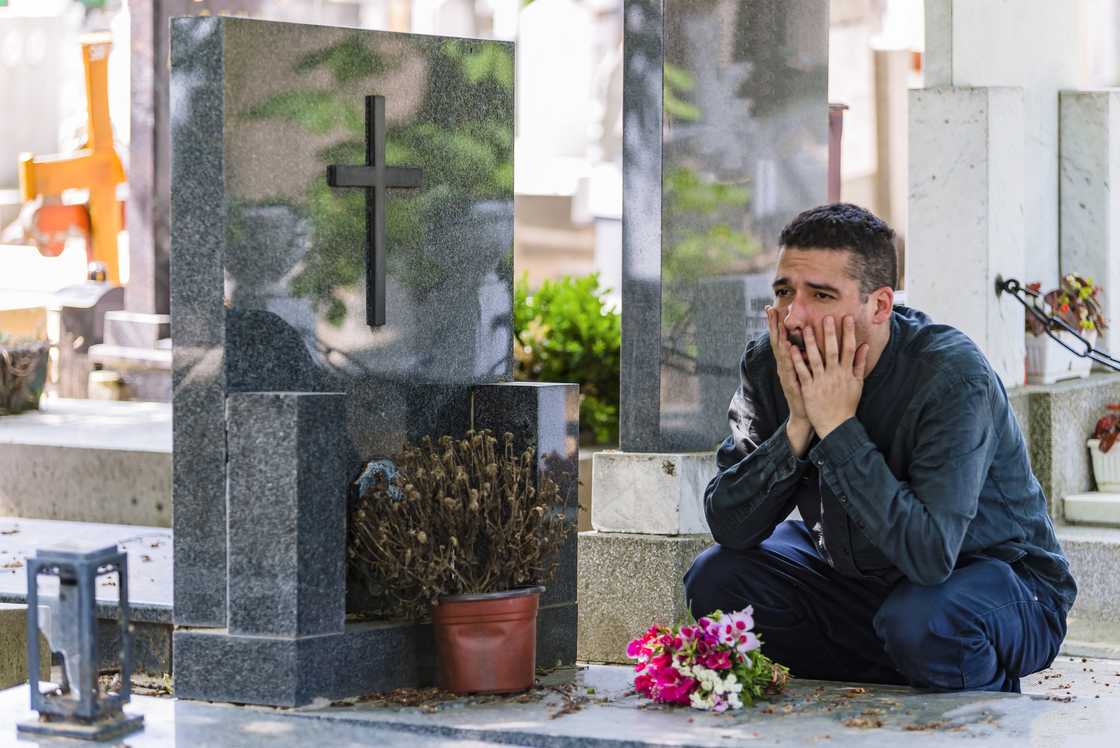
Source: Getty Images
He asked if he could at least visit the graveside. Nanay allowed it. As he knelt by Tatay's cross, I saw the man who had once carried me on his shoulders during harvest.
Later that week, I met the young lawyer to thank him. He told me something that surprised me. "Your uncle's case is common," he said. "Many families lose land because no one keeps records. You won because your mother wrote everything down, and because the church keeps faith in ink."
That evening, I opened the parish ledger copy again. Each signature felt like a heartbeat from the past. Tatay's faith in paperwork, Nanay's habit of keeping receipts, and even my stubbornness had all conspired to save us.
What I thought was a simple act of bureaucracy had become a memorial.
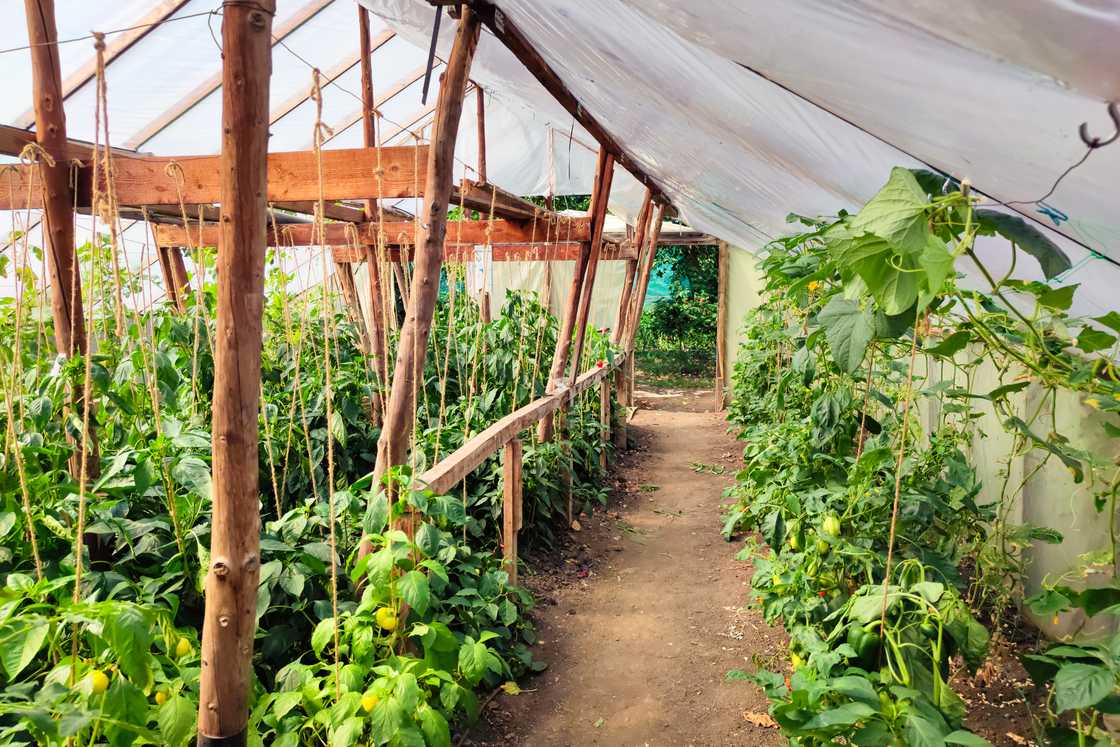
Source: Getty Images
With the land safe, life slowly returned to normal. We built a small greenhouse on one corner and planted kangkong, tomatoes, and pechay. The bougainvillaea grew into a bright hedge, keeping our boundary alive and visible.
When the Barangay Captain came to inspect the area, he smiled and said, "Now this is what a registered homestead should look like."
For the first time, Nanay's laughter filled the compound again. She began keeping a new notebook, neatly recording every expense and harvest yield. "Paper remembers," she liked to say.
Months later, my uncle returned, this time quietly. He looked thinner, older. He asked if he could help around the farm. Nanay agreed on one condition: that he would treat the land as home, not as ownership. He nodded and picked up a bolo.
Working side by side, the silence between them softened. Grief had once divided our family; now the same soil was teaching us patience.
One evening, as the sun melted behind Mount Banahaw, Nanay turned to me and said, "Land only has meaning when it feeds love."

Source: Getty Images
I understood her then. The fight had not been about property alone; it had been about dignity.
In time, we installed a small wooden sign at the entrance: Nanay's Field. It was not to boast but to remind ourselves that memory can protect what documents sometimes cannot.
The young lawyer continued to visit occasionally. He told me our case had inspired a local seminar about land fraud. "Your story will help other widows," he said.
I smiled. "Then our pain was not wasted."
We used part of the harvest profits to repair the church roof, the same parish that had preserved our history. When the priest thanked us during Sunday Mass, he said, "This family proved that God writes through faithful hands."
That night, as rain pattered gently on the iron sheets, I realised something profound: the land was not just saved for us. It was redeemed for everyone who would ever step on it, plant in it, and remember the truth that ink and honesty still matter.
When Uncle Ramon brought visitors later that season, he introduced me as "the daughter who fights with papers." We all laughed, but beneath it lay pride, a strange, healed pride.
We had reclaimed more than soil. We had reclaimed peace.

Source: Getty Images
Looking back, I have learned that inheritance is not guaranteed by blood. It is guarded by memory, truth, and courage. The world often assumes that documents are weapons for the rich, yet sometimes they are shields for the poor who dare to keep them safe.
If Nanay had not documented every donation, tithe, and expense, we would have had nothing to show when the forged deed appeared. Those old parish ledgers, faded and simple, became the courtroom's loudest witnesses.
In the Philippines, land is more than property. It carries the stories of birth, marriage, and death. Losing it feels like losing a family's soul. That is why record-keeping, though often mocked, remains a sacred duty.
People ask if I have forgiven my uncle. The truth is complicated. Forgiveness came slowly, like rain on dry soil. I saw how grief and envy can hide behind formality, how pain can disguise itself as ambition. But I also saw redemption. By the time he bent to till beside Nanay, he had laid down his pride.
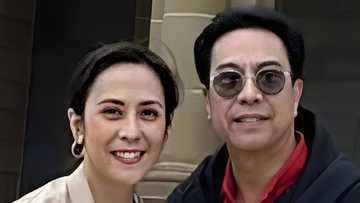
Read also
Rachel Alejandro, admits she had difficulty respecting Dad Hajji's choice for palliative care
Now, every planting season, I visit the parish office to stamp our updated receipts. The same shelves that once held proof of our ownership now carry evidence of our gratitude.
Sometimes, I see other widows queuing with their envelopes, and I help them fill out forms or make copies. They often whisper, "May God protect our fields." I tell them, "He will, but write it down too."
The fight for land taught me that justice may take time, but truth never rusts. Paper can tear, but signatures outlive lies.
I often walk along the bougainvillaea fence at dusk and touch the sign that reads Nanay's Field. It reminds me that honouring the dead does not mean surrendering to loss. It means protecting what they stood for.
So I ask you, a simple question: if someone dared to challenge your family's legacy today, would you have proof strong enough to speak when you cannot?
Because one day, someone may arrive at your gate holding a folder and a smile that hides ambition. On that day, may your truth be written clearly enough for even a judge to see.
This story is inspired by the real experiences of our readers. We believe that every story carries a lesson that can bring light to others. To protect everyone's privacy, our editors may change names, locations, and certain details while keeping the heart of the story true. Images are for illustration only. If you'd like to share your own experience, please contact us via email.
Bagong feature: Tingnan ang mga balitang para sa'yo ➡️ hanapin ang "Recommended for you" block at mag-enjoy!
Source: YEN.com.gh

